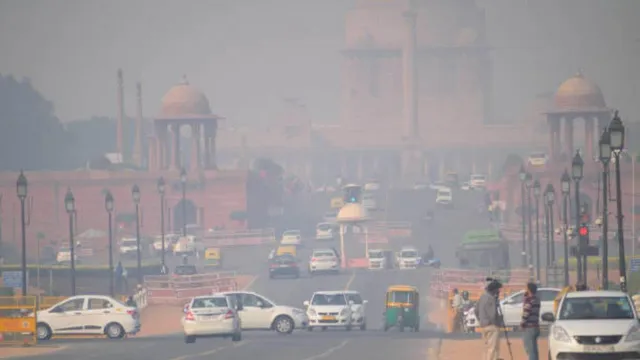- By Akansha Pandey
- Tue, 23 Sep 2025 09:51 PM (IST)
- Source:Jagran News Network
For thousands of commuters traveling between Ghaziabad and Delhi, the journey home has become a daily ordeal of traffic congestion, with the grid lock on National Highway 9 near Ghazipur worsening continuously, especially during evening hours. The primary cause of this severe and persistent jam is the Municipal Corporation's toll plaza, which chokes the entry point into the capital.
The collection of tolls and a Green Tax (environmental compensation charge) from commercial vehicles results in long queues that spill across the expressway. In the absence of dedicated lanes, these trucks and commercial vehicles often occupy all six lanes of the main carriageway. As a result, even regular, non-toll-paying private vehicles get trapped in the congestion, leading to hours of wasted time and fuel, and contributing to increased pollution.
A Five-Year-Old Problem That Has Only Intensified
When Prime Minister Narendra Modi inaugurated the redeveloped Meerut Expressway (NH-9) in May 2018, there was widespread hope that the toll plaza near the Ghazipur market would be removed, bringing relief to commuters. However, five years on, not only does the plaza remain, but the traffic problem it creates has intensified.
The issue is well-known to authorities, from the Delhi government to the central government, yet a solution remains elusive. The National Highways Authority of India (NHAI) recently approached the Supreme Court regarding the matter, but no directive has yet been issued.
Stalled Solutions And Expert Opinions
A plan to alleviate the congestion has been on paper for over a year but has seen no implementation. The Municipal Corporation acquired approximately 7,000 square meters of land from the NHAI to construct additional toll booths, but the project has not moved forward. Currently, with only two toll booths operational, the infrastructure is inadequate to handle the volume of commercial traffic.
Experts argue that the problem stems from a lack of accountability and outdated systems.
"The company that was awarded the contract has a provision in its tender that the toll plaza must not cause traffic jams," says Brijpal Singh, a road transport expert and former senior engineer with the Public Works Department. "If this is not being done, the Municipal Corporation should take action against the company."
Also Read: CCSU Admissions 2025: Re-Registration For UG And PG Courses Reopened, Apply By Sept 25
Experts also point towards the need for technological upgrades.
"New technology is being developed that can deduct toll fees without vehicles needing to stop," notes Dr PK Sarkar, a former professor at the School of Planning and Architecture's Transport Planning branch. "Such systems must also be trialed in Delhi, and attention must be paid to the toll management system. Serious and strategic work is required to solve this problem."

